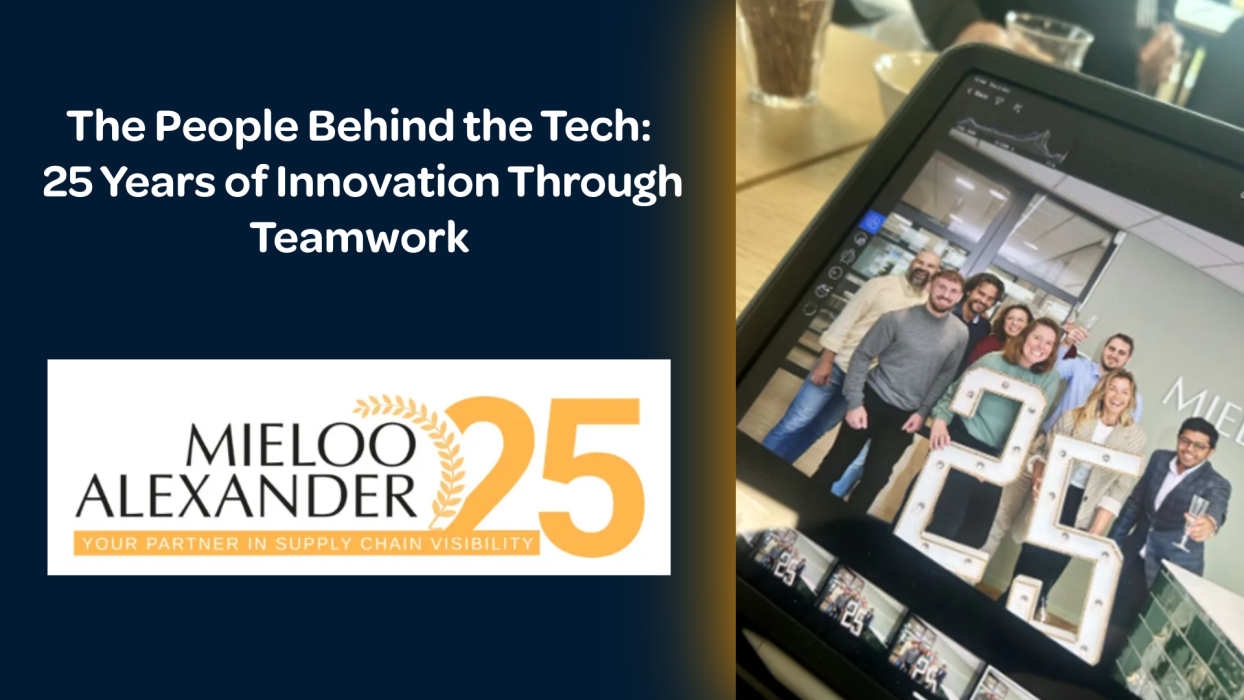Technology enables change; people deliver it. To mark our anniversary, we’re taking you behind the scenes at Mieloo & Alexander. What started with a handful of RFID experts has grown into multidisciplinary teams that design, build and scale supply chain technology, from Auto-ID and IoT to AI-supported decisioning.
The constant across 25 years? An innovation culture where engineers, consultants and operators co-create practical solutions that work on the shopfloor.
Our innovation culture: practical, curious, accountable
We believe innovation happens where strategy meets reality. That’s why our teams prototype quickly, test on site, and refine with real users. Curiosity drives us to ask “why” until we hit the root cause; accountability means we measure outcomes, not just outputs. The result is technology that fits how work actually happens and is adopted because it helps people do their jobs better.
How teamwork turns technology into outcomes
End-to-end solutions demand end-to-end collaboration. A typical project brings together RFID experts, software and data engineers, integration specialists and change leads. We align early on the KPI problem (accuracy, search time, service level), then iterate from pilot to rollout, keeping operators and planners involved at every step.
Stories from the field
PostNL - teamwork at scale in logistics
In a high-volume environment, Mieloo & Alexander teams worked with PostNL and Zebra to roll out an integrated RFID solution: dock-door portals for reusable pallet boxes, antennas above conveyors for parcel detection, and ARC Base/EPCIS for real-time data. The result is end-to-end supply chain technology the operation can trust: faster throughput, fewer errors and full visibility to steer daily work. This is how RFID experts and operators co-create outcomes, clear roles, shared KPIs, and iterative delivery.
Euro Pool System - transparency for returnable assets
Across a European depot network, Mieloo & Alexander combined RFID and vision portals at entry points with mobile RTI apps and cloud integration. Teams focused on asset utilisation and returns-flow insight, cutting losses and improving circulation, practical supply chain transparency built on item-level reads and usable evidence for decisions. It’s a good example of innovation culture meeting day-to-day depot realities.
What great delivery looks like
- RFID expertise and Auto-ID engineering that balance read-rate, label quality and physics with cost and durability.
- Integration craft to unify events in a single data model, so visibility becomes operational, not ornamental.
- Human-centred design to keep scans, portals and dashboards aligned with how people actually work.
- Continuous improvement to close the loop: measure, learn and scale what works.
Why it lasts: culture over buzzwords
Tools change. Principles endure: start with a clear use case; put teamwork at the centre; build trust in data; and make results visible. That’s how supply chain technology delivers, whether the task is stock accuracy in retail, flow stability in logistics, or WIP control in manufacturing.

